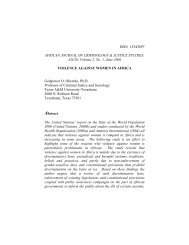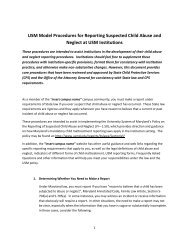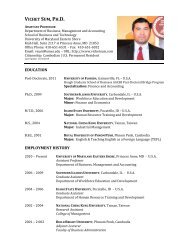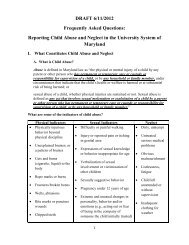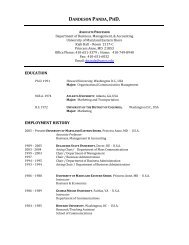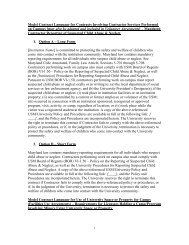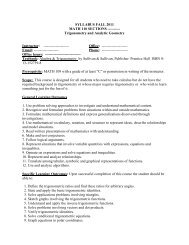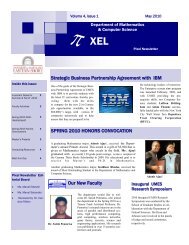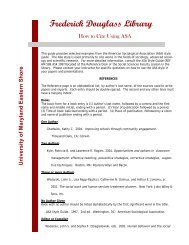Download - University of Maryland Eastern Shore
Download - University of Maryland Eastern Shore
Download - University of Maryland Eastern Shore
Create successful ePaper yourself
Turn your PDF publications into a flip-book with our unique Google optimized e-Paper software.
PP-2.5<br />
PP-2.6<br />
PP-2.7<br />
PP-2.8<br />
PP-2.9<br />
PP-2.10<br />
PP-2.11<br />
PP-3<br />
PP-3.1<br />
PP-3.2<br />
PP-3.3<br />
PP-3.4<br />
PP-4<br />
PP-4.1<br />
PP-4.2<br />
PP-4.3<br />
PP-4.4<br />
PP-4.5<br />
PP-5<br />
Identify, evaluate, and communicate to the patient or health-care provider, the<br />
appropriateness <strong>of</strong> the patient’s specific pharmacotherapeutic agents, dosing<br />
regimens, dosage forms, routes <strong>of</strong> administration, and delivery systems;<br />
recommend appropriate alternatives.<br />
Assess individual patient kinetic parameters, and design or modify the drug dosage<br />
regimen to optimize patient outcomes.<br />
Prevent, recognize, and remedy medication non-adherence, misuse or abuse.<br />
Document pharmacy interventions in a patient pr<strong>of</strong>ile, medical record, and/or<br />
electronic databases to facilitate communication and collaboration among<br />
healthcare providers.<br />
Design evidence-based disease management programs that incorporate outcome<br />
indicators, drug treatment protocols, risk reduction strategies, and education<br />
programs for health care providers and patients.<br />
Communicate and collaborate with prescribers, patients, caregivers, other involved<br />
health care providers, and administrative and supportive personnel to identify and<br />
resolve medication use problems.<br />
Devise strategies and research processes for medication use systems to minimize<br />
drug misadventures and optimize patient outcomes.<br />
Patient Assessment<br />
Identify, evaluate, and monitor patient signs and symptoms, and<br />
pharmacotherapeutic outcomes and endpoints.<br />
Identify and/or use instruments and techniques related to patient assessment and<br />
diagnosis.<br />
Obtain, interpret and evaluate patient information (including medication,<br />
laboratory and disease state patient histories) to identify the presence <strong>of</strong> a disease<br />
or medical condition, assess the need for treatment and/or referral, and identify<br />
patient-specific factors that affect health, pharmacotherapy, and/or disease<br />
management.<br />
Gather, organize, and evaluate accurate and comprehensive patient and drugrelated<br />
information to identify ongoing or potential drug therapy problems<br />
(prescription, non-prescription, alternative and complementary medications).<br />
Patient-Centered Care<br />
Design, implement, monitor, evaluate, and adjust patient care plans that are<br />
patient-specific and evidence-based.<br />
Educate patients or caregivers on the symptoms, significance, frequency, and<br />
management <strong>of</strong> adverse drug reactions.<br />
Facilitate patients assuming an active role in their self-care and overall health.<br />
Recommend, counsel, and monitor patient use <strong>of</strong> nonprescription medications,<br />
relevant dietary, and non-drug interventions.<br />
Demonstrate emergency first care techniques including CPR.<br />
Drug Information, Evidence-based Medicine, and Literature Evaluation<br />
113




